Podcasts And Interviews

Archaeology Podcast Network
[Podcast] Looting and destruction of Syria’s antiquities by ISIS – With Dr Amr Al-Azm – Context S2E3
1 May 2024
Much of Syria lies in ruins, and also its archaeological heritage has been a major casualty of the conflict, especially regarding the deliberate destruction and systematic looting of antiquities by forces of the so-called Islamic State terror organization. I had the pleasure to discuss some of the intricate details of these actions with Dr Amr Al-Azm on this episode of archaeological context.

UCL PI Media
Watchdogs: An interview with ATHAR co-founder and activist Amr Al Azm
26 February 2024
Watchdog group ATHAR was founded in response to the trafficking of Syrian cultural artefacts from the country during conflict. The group works to fight a bloated black market of illicit antiquities and the lenient online platforms enabling it. In 2019, a report released by ATHAR resulted in a public policy change from Meta, which ‘banned’ the sale of cultural heritage across its platforms. Now, five years after this alleged change, Sohaila Ahmed and I had the chance to speak with co-founder of the project Amr Al Azm to discuss their work and the promises from the silicon giant.

FinanciaL Times
[Podcast] Tech Tonic | Peak social media: The debate over young users’ mental health
11 July 2023
In this episode, the third in a series on social media, Elaine speaks to Emma Lembke, co-founder of youth advocacy group Log Off; Katie Paul, director at the Tech Transparency Project; Amy Orben, head of the Digital Mental Health Group at the University of Cambridge; and FT tech reporter Hannah Murphy.

Tech Policy Press
[Podcast] Facebook’s White Supremacist Problem
24 February 2022
A new TTP report released this month, Facebook Profits from White Supremacist Groups, says the company is “failing to remove white supremacist groups and is often profiting from searches for them on its platform,” exposing how it “fosters and benefits from domestic extremism.” To hear more about the findings in the report, I spoke to Katie Paul, TTP’s Director.

VICE
[Video] How ISIS Makes Millions From Stolen Antiques | The Business of Crime
24 February 2022
Antiquity trafficking is big business – a booming global trade that continues to devastate the cultural heritage of countries around the world. From Ancient Egyptian Coffins trafficked to the Met Museum in New York to ISIS and other terrorist groups openly hawking stolen goods on Facebook, the black market is as varied as it is large.
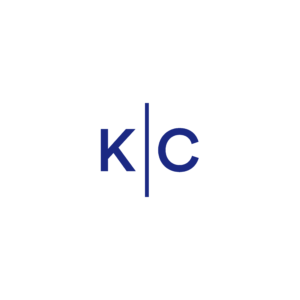
Kerning Cultures
[Podcast] Syria’s Stolen Memories
2 February 2022
During the Syrian war, a group of archeologists risk their lives to record the damage being done to their country’s cultural heritage, just as it was being taken away from them.

Al Jazeera
[Video] How did the US become a major hub for stolen ancient artefacts?
23 December 2021
Shawnee State University Professor Amr al-Azm and Antiquities Coalition founder Deborah Lehr tell host Steve Clemons about their efforts to curtail the artefacts flooding to the West from all corners of the globe.

Power Corrupts
[Podcast] Loot
9 November 2021
Is it a crime to steal back something that was once yours? That’s the question we’ll tackle this week, as we look at a string of sophisticated art heists aimed at reclaiming some stolen heritage objects. And we’ll explore how Facebook is facilitating the illicit trafficking of stolen cultural objects, all out in the open.
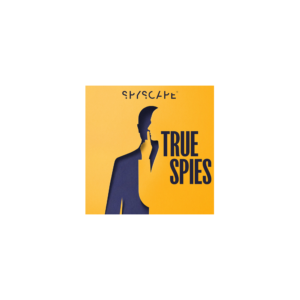
SpyScape
[Podcast] True Spies: The ATHAR Project
20 July 2021
Across Syria’s war-ravaged towns and cities, looters are trafficking the country’s priceless antiquities to the highest bidder. At the same time, two unlikely spymasters are doing their best to hold the criminals to account. Amr Al-Azm and Katie A. Paul, both US-based academics, are taking on ISIS militants, a hostile regime, and even Facebook, hoping to save Syria’s cultural heritage.

Arc/k
Humans Behind the Heritage: Interview with Dr. Al-Azm – Part 2
18 December 2020
Part 2 focuses on Dr. Amr Al-Azm’s work with The Day After, Heritage Protection Initiative and the ATHAR Project.

Arc/k
Humans Behind the Heritage: Interview with Dr. Al-Azm – Part 1
15 December 2020
In Part 1, we spoke to Dr. Amr Al-Azm the potential and impact of 3D and Virtual Reality in digital heritage preservation and education.

CBS News
[Video] Extremists, criminal groups using Facebook to sell ancient Middle East artifacts
16 June 2019
Ancient relics, antiquities and treasures from the Middle East are being looted and trafficked on Facebook, according to a new report by the ATHAR Project. It found extremist groups and criminal organizations are selling pieces of history like mosaics, statues and historical architecture online. The project’s co-directors, Amr Al-Azm and Katie Paul, joined CBSN to explain how they infiltrated the illicit black market and Facebook’s role in the trafficking.

TREND LINES PODCAST
[PODCAST] With Facebook’s Help, Middle East Antiquities Trafficking Enters the Digital Age
17 August 2018
Amr al-Azm and Katie A. Paul talk with WPR’s senior editor Robbie Corey-Boulet about how looters and traffickers of Middle Eastern antiquities are using Facebook to improve and expand their illicit trade in the digital age.
In The News
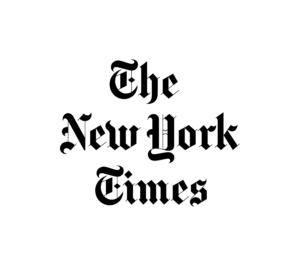
New York Times
Cleveland Museum of Art to Return a Rare Ancient Icon to Libya
30 May 2024
A 2,200-year-old sculpture of a bearded man carved from basalt, unearthed in the 1930s, is believed to have been stolen in the early 1940s.

The National
Facebook trade in fake relics fuels Middle East looting
26 April 2024
Despite years of warnings, thousands of groups offering purportedly ancient items can be found by simply entering the words “antiquities for sale” in Arabic into the social media giant’s search bar.

Actu Culture
EXPERTISE SCIENTIFIQUE ET TRAFIC D’ANTIQUITÉS : DES COPIES REMISES AU LIBAN ?
18 March 2024
Lors d’une cérémonie, qui s’est déroulée à New York le 7 septembre 2023, neuf panneaux de mosaïques officiellement considérés comme des antiquités pillées sur un site archéologique du Liban ont été remis à ce pays par l’unité de lutte contre le trafic d’antiquité (ATU), qui œuvre auprès du procureur du district de Manhattan. Pourtant, huit de ces panneaux semblent bel et bien être des productions du XXe siècle ! En effet, tous copient des modèles antiques célèbres mis au jour en Tunisie, en Algérie, en Italie ou en Turquie… comme nous le démontrerons dans cet article.

The National
The Perfect Copy: ‘The Stolen Collection’
15 January 2024
Tideland Studio reconstructs lost cultural heritage objects using AI technology and 3D printing. The artwork ‘The Stolen Collection’ questions our perception of the value of copies and exposes some of the significant consequences that the free market has on the world’s cultural heritage.

Big Think
How and why stolen Ukrainian art ends up on the black market
13 October 2023
Thousands of artworks and artifacts have gone missing since the invasion of Ukraine. Many of these artworks were taken to Russia, while others have ended up on the black market. In order to weaken the black market, authorities must punish buyers as harshly as sellers.
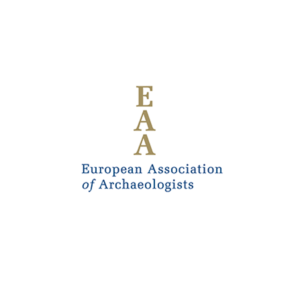
European Association of Archaeologists
THE IMPACT OF THE INTERNET ON THE ANTIQUITIES MARKET: JUST HOW EASY IS IT TO BLUR LINES?
11 July 2023
This article is the first in a two-part series by C. Wong.

Now Lebanon
Hezbollah’s blood art
23 June 2023
Despite increasing levels of security and scrutiny in recent years, the international art industry has a legacy of enabling criminal groups to move and conceal money with few restrictions, thanks to a culture of anonymous clients, minimal transparency and few checks and balances.

CNEWA
Erasing Identity: Destroying culture to destroy a people
June 2023
Only the battered and charred walls of the Hryhoriy Skovoroda National Literary and Memorial Museum remain standing, like ribs surrounding a chest cavity, void of the heart and lungs that once beat and breathed life.

The Conversation
Looting and decay: how the pandemic wrought real damage to African heritage
15 March 2023
The Covid-19 pandemic will long be remembered for the lockdowns it imposed and the millions of lives it stole, particularly among the elderly. A recent Unesco report shows that it has also took a subtle yet large toll on our world heritage properties.

Middle East Observer
Egypt’s treasure of smuggled antiquities will come back, sooner or later
1 March 2023
Katie Paul, co-director of the Antiquities Trafficking and Heritage Anthropology Research Project, a study into transnational trafficking and crime financing by anthropologists and heritage experts in the US, says the growth of social media has exacerbated the issue.

ArtNews
Activists in India and Africa Are Leading the Global Push to Repatriate Looted Artifacts
16 November 2022
Sixty-two years ago, the small Indian town of Thanjavur woke up to devastating news. A 2,000-year-old temple in the city had been looted, and its much-loved deity was missing. Police in India say that the centuries-old statue of the dancing Hindu god Shiva (Natarajar) now resides over 2,000 miles away, within the walls of the Asia Society and Museum in New York.

Qatar National Library
Qatar National Library Marks International Day Against Illicit Trafficking of Cultural Property
14 November 2022
To mark the third International Day Against Illicit Trafficking of Cultural Property, Qatar National Library hosted a high-level virtual panel discussion about the efforts to counter the sale and illegal circulation of antiquities and documentary heritage in the Middle East and North Africa.

The Art Newspaper
Stolen Afghan manuscripts have been coming up for sale at major auction houses, according to research group
13 October 2022
The Himaya project based in Qatar has been working with Interpol to identify artefacts trafficked to London, Paris and Amsterdam.

NPR
These activists want buyers and dealers of stolen relics to face criminal charges
12 June 2022
It’s common knowledge that armed non-state groups in the Middle East bankroll themselves with oil and ransom money. But a close third in the pipeline that fuels warlords and terrorists globally? The plunder and sale of antiquities.

FinTrail
Art & Antiquities: The AML Risks of the Booming Smuggling Trade
31 May 2022
As the war in Ukraine continues, Russian invaders have taken to stealing important cultural property from Ukrainian museums. Among the losses are Christian icons, fourth-century Sycithian gold, 300-year old silver coins, special medals, and more. One less discussed but immensely damaging feature of war is the attack on culture and national identity through art and antiquities looting. Conduits of culture, history, and national identity, stolen art and antiquities also fetch a pretty penny in the black market.

OCCRP
Proposed Law Could Make Iran a Hub for Illegal Antiquities Trade
23 May 2022
Strapped for funds under the weight of U.S. sanctions, lawmakers in Iran are pondering a new bill which proposed treating the country’s rich material heritage as a potential cash cow, but experts warned this would make Iran a hub for the illegal antiquities trade across the Middle East and Central Asia.

The National News
Stealing from history
20 May 2022
Inside the multimillion-dollar illegal trade in artefacts from the Middle East.

OCCRP
The Battle for Ukrainian Culture
31 March 2022
As war rages around the country, cultural centers and arthouses are scrambling to save priceless objects from destruction and would-be looters.

Este Pais
Tráfico de antigüedades en redes sociales: un problema creciente y de difícil solución
24 March 2022
En este texto, Daniel Salinas Córdova aborda el grave problema de la compraventa ilícita de bienes arqueológicos en redes sociales, particularmente en Facebook.

Observer
Afghanistan Antiquities Will Face U.S. Import Restrictions Through 2026
23 February 2022
After last year’s Taliban takeover, major concerns have been raised regarding looted antiquities appearing on the market.

ArtNet News
The U.S. Has Banned Imports of Afghan Antiquities to Quash the Market for Illicit Artifacts, But Some Experts Say It Could Do More Harm Than Good
22 February 2022
Under the new rules, US customs agents may return seized artifacts to the Taliban—a group with a history of destroying Afghan artifacts.

OCCRP
U.S.: Artifacts Sold by Pandora Papers Named Looter to be Returned
18 January 2022
The U.S. Department of Justice filed for the civil forfeiture of a massive trove of Khmer artifacts looted from Cambodia and trafficked by late antiquities dealer Douglas Latchford who allegedly forged provenance documents and used offshore trusts to sell looted art.

Newsweek
America’s Greatest Disruptors: Paradigm Shifters
15 December 2021
Trained as an anthropologist, Katie Paul’s road to becoming a social media and big tech watchdog began with witnessing the trafficking of ancient artifacts, often through Facebook groups, in the Middle East and North Africa.

The Art Newspaper
Balkan-based looters share tips on Facebook about vulnerable sites, potential buyers and how to escape the law
12 December 2021
Illicit trade in cultural heritage finds a home on social networks, study reveals.

New York Post
Inside the stolen art trade of the Upper East Side
30 November 2021
For decades, staggeringly valuable antiquities were a brisk trade in Manhattan, with posh antiques galleries lining Upper East Side avenues.

The Record
The unplundering of Nepal’s artifacts
18 November 2021
With many of Nepal’s art and artifacts being repatriated, questions still remain about how those antiquities left the country and what will happen to them when they come home.

Ariadne Plus
Impact of COVID-19 on Archaeology and Cultural Heritage
29 October 2021
ARIADNEplus is a project funded by the European Commission under the Horizon 2020 Programme.

The Vibes
How cultural property crime continued unabated during the pandemic
27 October 2021
854,742 items of cultural property were seized last year, including coins, medals, paintings, sculptures and antique books.

OCCRP
Interpol: Cultural Property Thefts Rise in the Wake of Pandemic
25 October 2021
Cultural property crimes, such as the theft and illegal exportation of paintings, ancient coins or other objects linked to a culture’s heritage, have been on the rise worldwide since the coronavirus pandemic broke out, Interpol said in a report published last week.

AIThority
UNESCO’s International Conference Partners with EU to Fight Against Illicit Trafficking of Cultural Property
25 October 2021
Key Initiatives Announced at UNESCO’s International Conference to Fight Against Illicit Trafficking of Cultural Property.

L’Orient-Le Jour
Le pillage des antiquités a pris de l’ampleur pendant la pandémie de Covid-19
14 September 2021
Le commerce illicite des biens culturels occupe le troisième rang des activités criminelles internationales, après le trafic d’armes et de stupéfiants. Il génère des milliards de dollars de revenus illicites et prive des pays d’une partie de leur histoire.

Arts Help
Looted Artifacts: Motivations and Technology’s Role
27 August 2021
Historical artifacts immortalize certain events, circumstances and civilizations. Trade and colonization paved the way for transferring artifacts from one place to another.

Fast Company
How one woman helped force Facebook to create a policy for dealing with militia groups
10 August 2021
Katie Paul and the Tech Transparency Project use ethnographic research to find and expose extremists on social media.

Al Jazeera
How can we end antiquities trafficking?
30 July 2021
The COVID-19 pandemic has exacerbated the theft and trafficking of antiquities and historical manuscripts, eroding our collective memory and ability to share it with future generations.

National Whistleblower Center
Social Media Panel of Whistleblowers and Experts to Discuss Holding Facebook & Social Media Companies Accountable
29 July 2021
Experts on social media, crime, and technology will participate in a major U.S. whistleblower conference discussing blowing the whistle on social media companies and social media whistleblower protections.

America Magazine
Facebook Wants a Monopoly on Human Connection
8 July 2021
Facebook’s formal mission statement is to “give people the power to build community and bring the world closer together.” In Facebook’s latest annual filing with the Securities and Exchange Commission, the word community appears 22 times.

The Times UK
Looters flout Facebook ban to sell ancient artefacts
3 July 2021
The tech giant has banned the sale of antiquities on its platforms, but ‘monuments for sale’ groups continue to thrive.

Art&OBject
Italian Art Police Recover 782 Stolen Archeological Finds
25 June 2021
Italian art police have repatriated an “archaeological treasure trove” of almost 800 stolen artifacts from Belgium in one of the largest operations of its kind in the country.

CNN
Hundreds of stolen artifacts recovered in Italy
22 June 2021
Italian art police have repatriated an “archaeological treasure trove” of almost 800 stolen artifacts from Belgium in one of the largest operations of its kind in the country.

CNN
‘Tomb raiders’: The pandemic is making it easier than ever to loot ancient Roman treasures
5 June 2021
The looting of ancient art in Italy is not a new phenomenon. It is at least as old as the Roman empire, which not only contended with its own tomb raiders – or “tombaroli,” as they are known in Italy – but also pilfered riches from other nations.

The British Museum
Circulating Artefacts: new developments in the fght against art crime
1 June 2021
Circulating Artefacts has entered a partnership with the Antiquities Traffcking and Heritage Anthropology Research Project (atharproject. org), which monitors social media for posts from looters and traffckers in North Africa and the Middle East.

Forward
In Turkey, counterfeit Jewish artifacts are commonplace – and often sloppy
9 April 2021
In modern times, Turkey has become a nexus for the Illegal antiquities trade due to its proximity to conflicts in many of those former Ottoman provinces such as Syria, Iraq, Libya and elsewhere in the region.

EU AML/CFT Global Facility
Blood antiquities: the devil is in the demand
2 March 2021
Among Syrian-based Facebook groups a third of users offering artefacts were identified to be based in conflict zones. Social media, and other more discreet online platforms, enable the seller and buyer to transact without the middlemen usually associated with international smuggling.

ORGANIZED CRIME AND CORRUPTION REPORTING PROJECT
Experts Call on Facebook to Address Illegal Trade on its Pages
25 February 2021
Experts tracking online crime urged prosecutors throughout the United States to address Facebook’s role in facilitating a multitude of illegal trades and marketplaces, including the illegal drug trade which the social media giant has allegedly facilitated amidst the ongoing opioid crisis. in the U.S.

Washington Post
The Capitol mob desecrated a historical workplace — and left behind some disturbing artifacts
8 January 2021
The Antiquities Trafficking and Heritage Anthropology Research (ATHAR) Project kept a lookout online for rioters’ stolen “souvenirs.” Katie Paul, the group’s co-director, says she saw postings for the lectern on Facebook Marketplace, where the sale of stolen goods is prohibited.

The star
The app that could help crack down on the trafficking of art pieces and cultural artefacts
8 January 2021
These cooperative efforts are essential given the booming trade of historical objects and antiquities on social media. Several ATHAR Project studies revealed that Facebook groups were facilitating the trade in objects stolen in conflict zones such as Syria, Iraq and certain North African countries.

ORGANIZED CRIME AND CORRUPTION REPORTING PROJECT
From lockdowns to looting: how Covid-19 has taken a toll on world’s threatened heritage sites
8 January 2021
The Antiquities Trafficking and Heritage Anthropology Research Project, or Athar, led by anthropologists and heritage experts tracking illegal trafficking in stolen artefacts, reports that the online illicit trade in looted objects spiked after the pandemic hit, markedly in March and April.
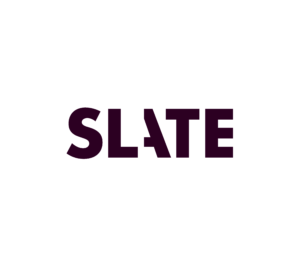
Slate
Want to Buy Some Stolen Antiquities? Try Facebook.
9 December 2020
Accessing the black market for antiquities is no more difficult than requesting membership in the popular “Dogspotting” Facebook group. Facebook’s “Groups” feature lets users connect efficiently and (sort of) discretely to share the locations of loot like Egyptian coffins. According to the Antiquities Trafficking and Heritage Anthropology Research (ATHAR) Project—the only group of its kind monitoring social media—Facebook is the wellspring of the modern illicit antiquities trade, where traffickers thrive because of the platform’s laissez-faire regulation.

Frame Magazine
Why those in art and design must stay vigilant about the illegal trade of cultural goods
9 December 2020
According to The UNESCO Courier, a team of anthropologists and heritage experts at the Antiquities Trafficking and Heritage Anthropology Research (ATHAR) Project realized that there was a surge in the sale of stolen cultural objects on social media networks during the first lockdown this year.

Inquirer
Facebook removing evidence of war crimes — researchers
1 December 2020
The ATHAR Project’s researchers certainly do not mince their words. For them, Facebook is effectively deleting evidence of war crimes by wiping all traces of illegal art trafficking on the social network. The ATHAR Project (Antiquities Trafficking and Heritage Anthropology Research) once again sounded the alarm Wednesday, Nov. 25, that the trafficking of antiquities remains rife in Facebook groups that can have thousands of members.
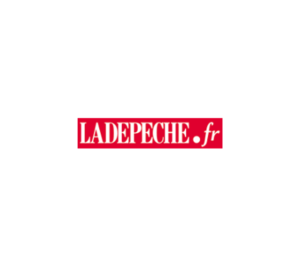
La Depeche
Facebook supprime des preuves de crimes de guerre, selon des chercheurs
26 November 2020
Les scientifiques du projet Athar ne mâchent pas leurs mots. Pour ces chercheurs, Facebook participe à effacer les preuves des crimes de guerre en supprimant les traces de ventes illégales d’oeuvres d’art sur le réseau social. Ce mercredi 25 novembre, le projet Athar a encore démontré que le trafic d’antiquités sévissait toujours dans des groupes Facebook aux milliers d’abonnés.
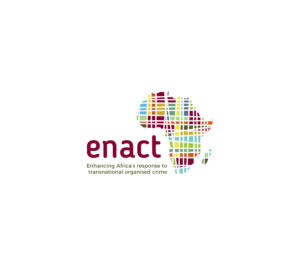
enact
Organised crime in Africa / Inside the illegal trade in West Africa’s cultural heritage
27 November 2020
Research focused on North Africa has found that online groups are now playing a vital role in antiquities trafficking. Social media platforms, particularly Facebook, play host to these groups. Looters on the ground, at remote sites and in conflict zones, connect online with potential buyers around the world. Social media platform monitoring of criminal and harmful activity by their users is poor.
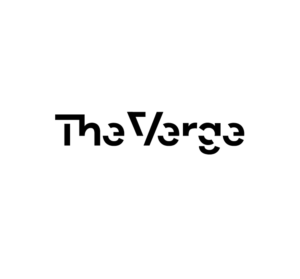
The Verge
Facebook is deleting evidence of war crimes, researchers say
25 November 2020
The black market for looted goods is flourishing on Facebook. While the company banned the sale of historical artifacts in June, many of the posts are in Arabic, and Facebook lacks the expertise to properly enforce its new policy.

AFP
Pandemic harms efforts to rein in antiquities theft
9 November 2020
From ancient mosaics to world-famous canvasses — the trafficking of cultural treasures has gathered pace during the coronavirus pandemic with criminals increasingly conducting the trade online.
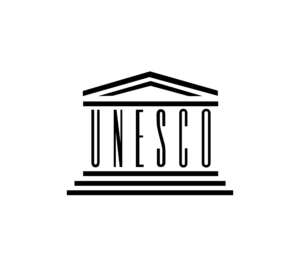
UNESCO
Social networks: The new El Dorado for traffickers
8 October 2020
Auction sites and social networks have, in the last few years, become hubs for the illicit trafficking of cultural goods. Though Facebook recently banned the trade in antiquities on its platform, much remains to be done to curb this relatively recent marketplace, which offers traffickers a global showcase.

UNESCO
50 years of the fight against the illicit trafficking of cultural goods
8 October 2020
Half a century after its adoption, the UNESCO 1970 Convention against the illicit trafficking of cultural property is still a major instrument to stem this scourge.

OCCRP
NYC Antiquities Dealers Busted for Falsifying Provenance
29 September 2020
Two New York antiquities dealers were arrested for lying for years about the origins of the items they were selling, defrauding this way buyers and brokers, the U.S. Department of Justice said.

NPR
Facebook Has Moved To Ban Sales Of Looted Antiquities. Will It Make A Difference?
31 July 2020
In a video shared in a Facebook group, a narrator speaking Syrian-accented Arabic describes an elaborate, Roman-era mosaic depicting mythological figures and animals. The colored glass and stone in the mosaic are still vivid some 2,000 years after it was created.

NPR
Facebook Moves To Prevent Antiquities Looting. Critics Say It’s Not Enough
28 July 2020
Is Facebook doing enough to stop the trade in looted antiquities? Facebook has announced new rules to crack down on that aggressive trade. As we’re about to hear, some people use the social media site to sell ancient artifacts that they haven’t even dug up yet.

Leaders of Great Britain
Live, laugh, loot: the trafficking of antiquities during a pandemic
5 July 2020
At the height of Covid-19, online shopping increased by some 129 per cent. From the latest pair of Nikes to a bulk lot of Tunnock’s wafers, it seems that in 2020 any whim can be satisfied in a matter of clicks. Unfortunately, the ability to purchase whatever we want extends to the things we should not be able to – including the acquisition of stolen artefacts.

Medium – Damien Huffer
Mummy Dearest? Including Human Remains in Facebook’s Community Standards is Meaningless without Enforcement
2 July 2020
On June 23rd, Facebook announced a policy change to finally include “historic artifacts” as banned on its platforms, after exposés by numerous media outlets and tireless work by ACCO experts Katie Paul and Amr Al-Azm at The ATHAR Project.

OCCRP
Experts Welcome Facebook’s Ban on Antiquities Trade Posts
2 July 2020
Anthropologists and heritage experts who have called for more due diligence on the part of the legitimate antiquities market welcomed Facebook’s new community standards that have put historical artifacts on the list of items forbidden to post for sale on the platform.

The National News
‘Sales can result in harmful behaviour’: Facebook and Instagram ban sale of historical artefacts
25 June 2020
After criticism from archaeologists and academics about the trade of looted items on its platform, Facebook has banned the sale of historical artefacts on its site.

Architectural Digest
Facebook Bans Sales of Historic Artifacts
25 June 2020
Middle Eastern and North African antiquities, including sculptures, mosaics, coins, scrolls, and sarcophagi, have long been mythologized and prized by museums and collectors alike. But over the last several years, a robust black market for these relics has been sweeping Facebook, forcing the social media powerhouse to finally implement a ban on related illicit activities.

Euronews
Facebook bans sale of historical artefacts in anti-looting crackdown
23 June 2020
The wars in Iraq, Syria, Yemen and Libya has led to a thriving trade in looted artefacts – and social media platforms play a key role. Facebook will ban the sale of historical artefacts in an attempt to prevent priceless items looted or stolen from being sold online.

Forbes
Facebook Bans Artifacts Trade After Uptick In Posts Of Looted Objects
23 June 2020
Facebook has banned trading of historical artifacts as part of new community standards rolled out Tuesday after reports emerged in April of increased trafficking of looted antiquities on the site during the Covid-19 pandemic.

Center for Art Law
Social Media: A Smuggler’s Tool For Looted Antiquities
16 June 2020
Social media allows us to connect in a matter of seconds with people all over the world, ranging from fan pages discussing niche interests to hashtags used to organize political protests. However, illegal activity through social media is made easier by the anonymous nature of virtual interactions. The black market has made its way to sites like Facebook, where illegal items are publicly advertised and sold on online marketplaces, including looted antiquities.

OCCRP
US Arts and Crafts Store sues Christie’s for Selling Stolen Artifact
25 May 2020
After having paid massive fines and having returned thousands of questionably acquired antiquities, Hobby Lobby, a US based arts and crafts chain which heavily funded the Museum of the Bible in Washington DC, is now suing Christie’s for the US$1.6 million they had paid for a 3,500 years-old cuneiform tablet from Iraq that turned out to have been stolen.

UNESCO
CULTURE & COVID-19 Impact & Response Tracker
13 May 2020
The Antiquities Trafficking and Heritage Anthropology Research (ATHAR) Project, a UNESCO partner which investigates and documents the digital underworld of trafficking in looted artefacts, has found an uptick in posts on Facebook groups involved in the buying and selling of looted objects from the Middle East and North Africa in recent months, as many countries went into lockdown.

Art &Object
Antiquities Looters Are Making Use of COVID Chaos
12 May 2020
In North Africa and the Middle East, looters of ancient sites are taking advantage of distracted authorities to nab more historical treasures. The ATHAR Project (Antiquities Trafficking and Heritage Anthropology Research), a group of anthropologists that tracks the illicit sale of antiquities online, is reporting an increase in activity on the Facebook groups they monitor.

Le Figaro
Pendant le confinement, Facebook se transforme en centre de commerce illégal d’antiquités
10 May 2020
Profitant de la vulnérabilité de certains sites archéologiques, les pilleurs et trafiquants d’œuvres d’art profitent de la crise sanitaire. Un marché noir numérique s’est ainsi développé sur le réseau social.

SMITHSONIAN MAGAZINE
Authorities Recover 19,000 Artifacts in International Antiquities Trafficking Sting
8 May 2020
A joint operation undertaken by Interpol, Europol, the World Customs Organization and local police forces has recovered 19,000 artifacts from 103 countries, the global policing organization announced this week.

OCCRP
Global Crackdown on Illegal Antiquities Trade Sees 101 Arrests
8 May 2020
In a massive crackdown on the illegal antiquities trade that spanned over 100 countries, international and national law enforcement agencies arrested 101 individuals and recovered some 19,000 archeological artifacts, Interpol reported on Wednesday.
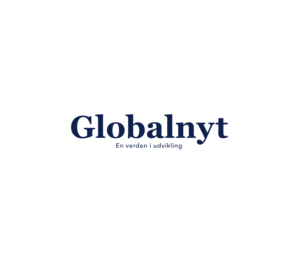
GLOBALNYT
Smuglere har kronede dage på det online sorte marked
6 May 2020
Mens pandemien raser over jorden, har smuglere travlt under jorden og i den virtuelle verden. Den ulovlige online handel med antikviteter og arkæologiske fund fra især Mellemøsten og Nordafrika fortsætter ufortrødent og tager endda til, mens myndighederne har blikket rettet mod corona.
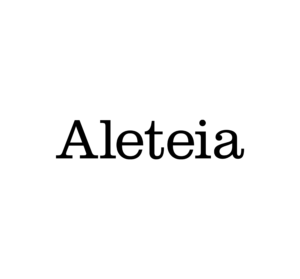
Aleteia
The smugglers, who include terrorist organizations, use Facebook to coordinate their efforts and crowdsource information.
4 May 2020
A new report from Katie Paul, co-director of the Antiquities Trafficking and Heritage Anthropology Research (ATHAR) Project, highlights these nefarious acts, while the ATHAR twitter feed calls on Facebook to account for their reckless online practices, which facilitate such sales.

artnet news
Looters Are Taking Advantage of the Worldwide Lockdown to Rob Cultural Heritage Sites—and Selling Their Stolen Wares on Facebook
1 May 2020
As archaeological sites become increasingly vulnerable to looting amid global lockdowns, Facebook has emerged as an increasingly popular hub of the illicit trade. The ATHAR Project has seen a recent surge of activity on the social-media platform, particularly concerning looted objects from the Middle East and North Africa.

FORBES
Smugglers Are Using Coronavirus Lockdowns To Loot Artifacts
30 April 2020
A group that tracks looted artifacts online says that thieves in the Middle East and North Africa are taking advantage of coronavirus lockdowns to pillage archeological sites and sell their finds on online black markets.

GLOBAL INITIATIVE AGAINST TRANSNATIONAL ORGANIZED CRIME
[PODCAST] DEEP DIVE Episode 1 – Destruction or Theft?
30 April 2020
Destruction or Theft? Between 2014 and 2017, the Islamic State group occupied territory in Iraq. At its height it controlled almost a third of the country and over 4,500 historical sites.

THE ART NEWSPAPER
Online antiquities smugglers are taking advantage of the coronavirus crisis
29 April 2020
The online trade of illicit antiquities seems to be on the rise during the coronavirus crisis. The ATHAR Project, which investigates and documents the digital underworld of trafficking in looted artefacts, has found an uptick in posts on Facebook groups involved in buying and selling looted objects from the Middle East and North Africa in recent months, as many countries went into lockdown.

UNESCO
Art traffickers: Pillaging peoples’ identities
1 April 2020
The COVID-19 pandemic has further exacerbated this phenomenon. During the lockdown, the Antiquities Trafficking and Heritage Anthropology Research (ATHAR(link is external)) Project, a team of anthropologists and heritage experts specializing in digital networks for art trafficking, observed a resurgence in the sale of stolen objects on social networks – particularly from the Middle East and North Africa. The investigative study by this UNESCO partner led Facebook to ban the trade of historic cultural objects on its online platform.

Urdu point
Lebanon Serves As Main Gateway For Terrorists To Smuggle Artifacts From Syria – Researcher
28 November 2019
Terrorists use Lebanon as the main exit point for trafficking in looted Syrian antiquities, while the buyers are spread all over the world, Amr al-Azm, co-director of the Antiquities Trafficking and Heritage Anthropology Research (ATHAR) Project, told Sputnik in an interview.

SCENE ARABIA
SYRIA’S CULTURAL HERITAGE IS A CASUALTY OF WAR – HERE ARE THE PEOPLE PROTECTING IT
11 October 2019
The history of Facebook is marked by a slew of accusations thrown against them by everyone from free-speech advocates to wildlife activists and, so far, they have managed to elude almost every one of them with slippery, noncommittal remarks, hiding underneath vague policies and loopholes such as Section 230 of the Communication Decency Act (CDA) of 1996, which gives technology companies immunity from any content posted onto their platforms by third parties.

OggiScienza
Social network facilitatori per il traffico di opere d’arte: il caso della Siria
29 August 2019
I gruppi Facebook sono una delle piattaforme per far incontrare domanda e offerta. La network analysis e lo studio delle trattative ha messo in evidenza il modus operandi di mediatori legati all’ISIS e Al Qaeda.

HYPERALLERGIC
How Social Media is Allowing for Illegal Antiquities Trafficking
11 July 2019
The Antiquities Trafficking and Heritage Anthropology Research (ATHAR) Project has published a critical report on West Asian antiquities trafficking taking place more or less out in the open on Facebook.
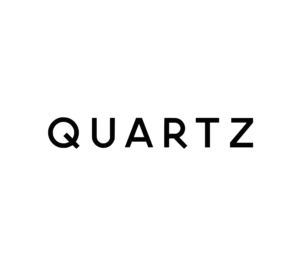
QUARTZ
Terrorists are trafficking looted antiquities with impunity on Facebook
3 July 2019
Networks of criminals are trading priceless Middle Eastern antiquities—from entire Roman mosaics to full Pharaonic coffins—on Facebook, and there are no rules to stop them.

WASHINGTON POST: TECH 202
The Technology 202: Social media companies readying to combat disinformation in Democratic debates
26 June 2019
The Alliance to Counter Crime Online and the ATHAR Project are warning House lawmakers that Facebook “has also become a repository for massive online criminal markets and terrorist groups,” according to a letter they submitted as the House holds a counterterrorism hearing.

LIVE SCIENCE
‘Blood Antiquities’ Looted from War-Torn Yemen Bring in $1 Million at Auction
5 June 2019
A team of researchers with the ATHAR Project has been monitoring 95 Facebook groups whose members include looters, antiquities sellers and buyers.

ABC.AU
Tomb raiders turn to Facebook to peddle treasures stolen from conflict zones
1 June 2019
A decade after Facebook played a role in toppling regimes in the Arab Spring, opportunistic tomb raiders have turned to the platform to sell antiquities stolen in the wake of those uprisings.

US NEws
How Technology Is Tracking Stolen Artifacts
27 May 2019
Technology is playing a pivotal role in the global ancient artifacts trade. Thieves are using the anonymity of the internet to sell stolen relics, while authorities are using cutting-edge tools to assess the damage to plundered sites and raise awareness of stolen works.

GULF Today
The dark side of social networking sites
17 May 2019
While E-bay and other internet platforms have been advertising and selling stolen artefacts for years, Facebook has reached the top in cultural heritage commerce. Azm and Paul reported that Facebook has become “the most high profile of the social media platforms that have been used as vehicles for the sale of illicit artefacts.”

the verge
Early Facebook executives have reached a surprising consensus about the company’s power
10 May 2019
Ancient treasures pillaged from conflict zones in the Middle East are being offered for sale on Facebook, researchers say, including items that may have been looted by Islamic State militants.

daily mail uk
Ancient treasures ‘looted by ISIS’ including a statue from ravaged Palmyra are being ‘offered for sale on Facebook’
10 May 2019
Professor Amr Al-Azm’s Athar Project uncovers stolen Middle Eastern Antiquities which he says are now for sale on Facebook.

Inquisitr
Looted Antiquities From Syria And Iraq Are Being Sold On Facebook
10 May 2019
It is not just black market sales that are occurring on the popular social network. These groups are also posting plans and advice for looting excursions, with one group discussing the dangers of tomb collapse and another posting videos on makeshift pumps to keep excavation sites dry.

NEW YORK TIMES
Now for Sale on Facebook: Looted Middle Eastern Antiquities
9 May 2019
Ancient treasures pillaged from conflict zones in the Middle East are being offered for sale on Facebook, researchers say. Facebook groups advertising the items grew rapidly during the upheaval of the Arab Spring and the ensuing wars, which created unprecedented opportunities for traffickers.

euronews
Revealed: Thousands of looted artefacts from Middle East sold in Europe via social media
4 May 2019
Artefacts from Syria and other Middle Eastern countries are being looted and then sold on social media, with many ending up in Europe. “In Iraq, Libya, Yemen … looting has become really endemic and systematic.”

THE TIMES UK
Artefacts looted from Iraq and Syria sold on Facebook
3 May 2019
Antiquities from Syria and Iraq are being traded on a large network of dedicated Facebook groups that often have as many as 120,000 members.

BBC
Antiquities looted in Syria and Iraq are sold on Facebook
2 May 2019
Facebook is being used by networks of traffickers to buy and sell looted antiquities, the BBC has learned. Private groups also discuss how to illegally excavate ancient tombs, according to research by academics.

BBC SIX O’CLOCK news
[radio] SIX O’CLOCK news ANTIQUITIES TRAFFICKING ON FACEBOOK
2 May 2019
Facebook is being used by networks of traffickers to buy and sell looted antiquities, the BBC has learned. Private groups also discuss how to illegally excavate ancient tombs, according to research by academics. [Starts at 15:50 mark]

BUSINESS INSIDER
Facebook shut down 49 groups being used by looters to sell stolen ancient artifacts like Roman mosaics
2 May 2019
“What we’ve seen is an explosion of sites and users on Facebook. It’s transnational and Facebook is essentially allowing this to happen on its watch,” al-Azm told the BBC.

FOX NEWS
Ancient treasures looted from Syria and Iraq are being sold on Facebook, experts warn
2 May 2019
In addition to Facebook pages offering looted antiquities, some also offer “looting to order,” where people ask for certain items that are subsequently stolen, according to the archaeologist. Facebook told the BBC that it has removed 49 groups as a result of the broadcaster’s investigation.

THE DAILY BEAST
Facebook Pulls 49 Sites Selling ‘Stolen-to-Order’ Antiquities From Syria and Iraq
2 May 2019
Facebook has shut down 49 “loot-to-order” antiquities-trafficking pages selling bespoke artifacts from war zones to clandestine collectors, in response to a two-year BBC investigation.

ABC
Real-life tomb raiders: Egypt’s $US3 billion smuggling problem
20 October 2018
Social media has played a significant role in resurgence of the illegal trade.

NRC Handelsblad
Wie illegaal wil opgraven moet op Facebook zijn
12 October 2018
Two ‘archaeoactivists’ have followed facebook groups about illegal excavations for a year. Trade is being conducted in illegally excavated treasures. It is teeming with tips about good sites and the approach to an excavation. [Translated from Dutch]